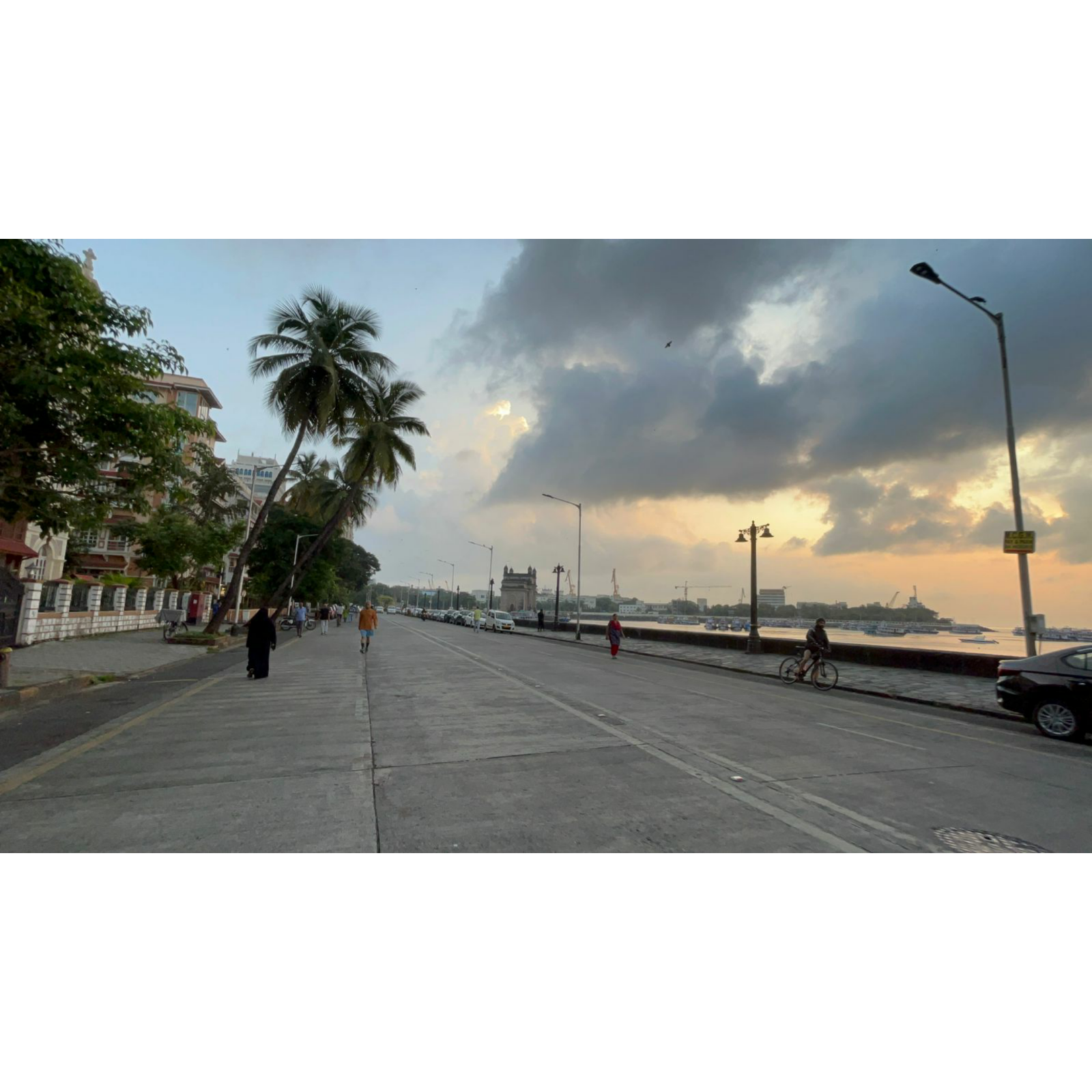Invincible
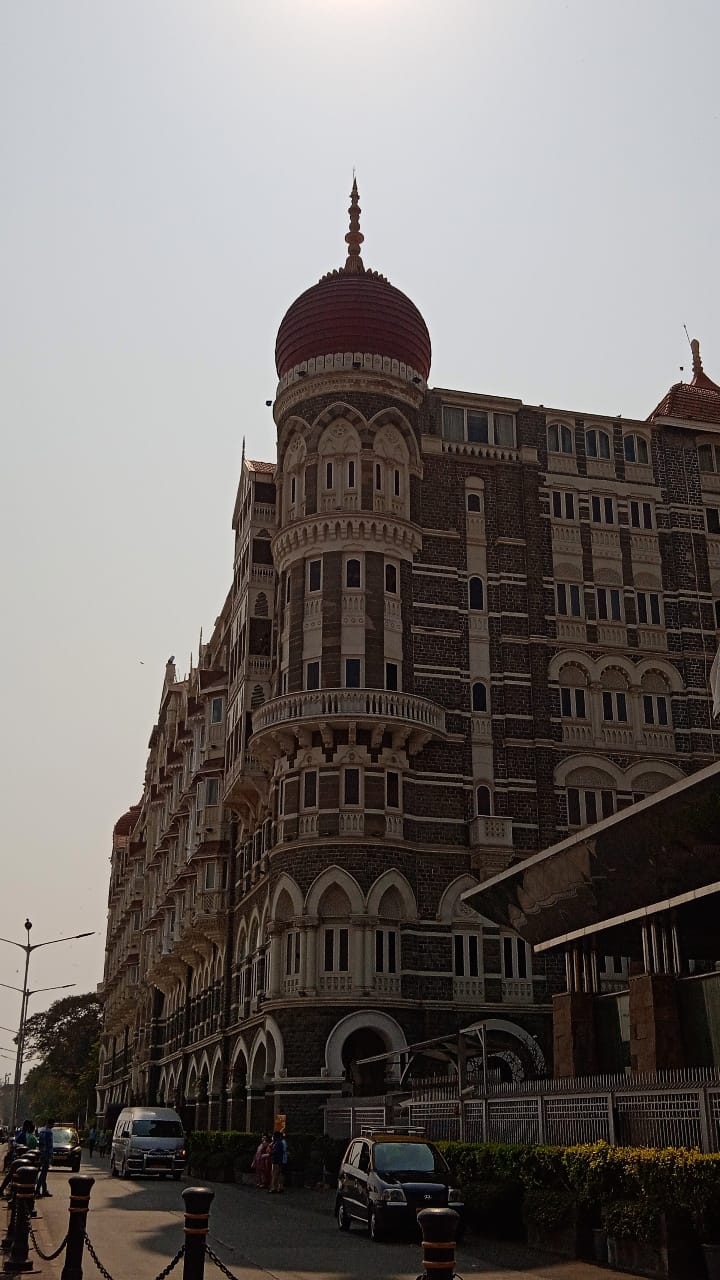
I remember that evening vividly, as if it were yesterday. It was one of those rare chilly winter nights in Mumbai, and I was in the living room, practicing English verbs for an exam scheduled the next day. At nine, I was the kind of boy who packed his school bag diligently by 10 p.m.—though, to be honest, it was usually my mom who did most of the packing while I hovered nearby, pretending to help. That night, I went to bed blissfully unaware of the nightmare that was about to unfold just miles away.
At 3:30 a.m., I woke to the sound of the television blaring. Groggy and confused, I wandered into the living room. My parents sat on the couch, their faces taut with tension, their eyes glued to the screen. Even as a child, I could sense that something was horribly wrong. My mother’s silent sobs filled the room; her tears shimmered in the flickering light of the TV. My father, ever calm and practical, was trying to make sense of the chaos unraveling before us.
Mumbai, our beloved city, was under siege. Heavily armed terrorists from Pakistan’s Lashkar-e-Taiba had launched coordinated attacks on iconic landmarks, leaving devastation in their wake. The haunting footage on the news showed places I knew well—the majestic Taj Mahal Palace Hotel, the bustling CST railway station, and the vibrant Leopold Café—reduced to scenes of horror.
Fear gripped me like a vice, tightening with every update. My mother gasped aloud, her trembling hands flying to her mouth, as breaking news flashed on the screen. Vijay Salaskar, the fearless encounter specialist; Hemant Karkare, Chief of the Anti-Terrorism Squad; and Ashok Kamte, Assistant Commissioner of Police—heroes of the city—had been ambushed and martyred near Cama Hospital. My mother’s grief filled the room, palpable and heavy.
By morning, I learned my English exam had been canceled—a small mercy amid the chaos. Police patrols surged through our neighborhood in North Mumbai, far from the epicenter of the attacks, but fear hung in the air like an unwelcome guest. The city felt tense, fragile, as though it might shatter with the next breaking news alert.
As I grew older, I began piecing together the events of that horrific night. Fragmented reports and personal stories painted a grim picture. My uncle, a police officer, once remarked how woefully unprepared Mumbai Police had been for such a sophisticated assault. Bombings had scarred Mumbai before, but this was different—this was a brutal face-to-face confrontation with terror.
Years later, as I delved deeper, anger simmered beneath the surface. Intelligence agencies like IB and R&AW had reportedly warned the Indian Coast Guard of an imminent threat. The terrorists had made seven prior attempts to infiltrate, thwarted only by logistical failures. Seven. Yet no decisive action had been taken. Bureaucracy and negligence had left us vulnerable.
Even during the siege, inefficiency hampered the response. The National Security Guard (NSG), India’s elite counterterrorism unit, took six agonizing hours to reach Mumbai. Six hours. As our city bled, lives hung in the balance while vital orders were buried in red tape.
Amid the despair, stories of courage and resilience emerged like beacons of hope. The Mumbai Police, armed with outdated weapons and faulty bulletproof vests, faced overwhelming odds but stood their ground. Constable Tukaram Omble’s sacrifice remains particularly poignant. During the capture of Ajmal Kasab, one of the terrorists, Omble grabbed the barrel of Kasab’s AK-47 and took a hail of bullets, ensuring others were unharmed. His bravery led to Kasab’s arrest, exposing the terrorists’ plans to disguise the attack as one orchestrated by Hindus.
Police Constable Tukaram Omble:
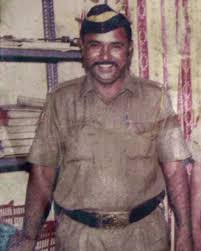
It’s a moment I often revisit. Omble’s selfless act saved countless lives and preserved the truth. Without him, the entire narrative could have been twisted into a false and dangerous story.
In the months and years that followed, reminders of that night were everywhere. On a recent visit to Leopold Café, I saw the bullet marks and preserved shattered glass—testaments to the horror and the café’s determination to stand strong. I recalled an earlier visit to South Mumbai with a friend. As we walked from CST to Flora Fountain, he marveled at the armored posts and armed officers stationed everywhere. For him, it was striking and unusual; for me, it was the new normal. The aftermath of 26/11 had changed how the city protected itself.
Leopold Cafe (2022/2023):
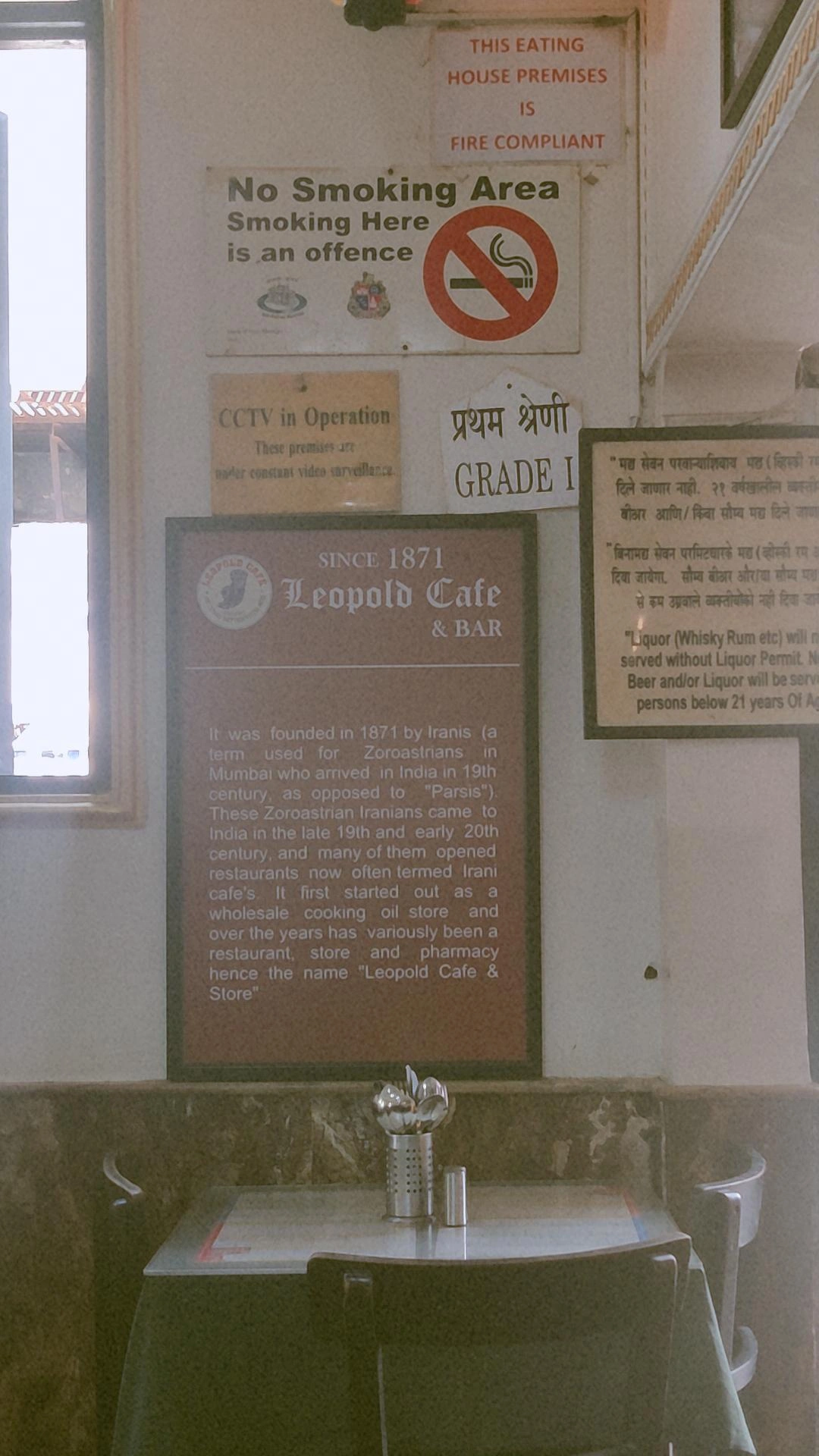
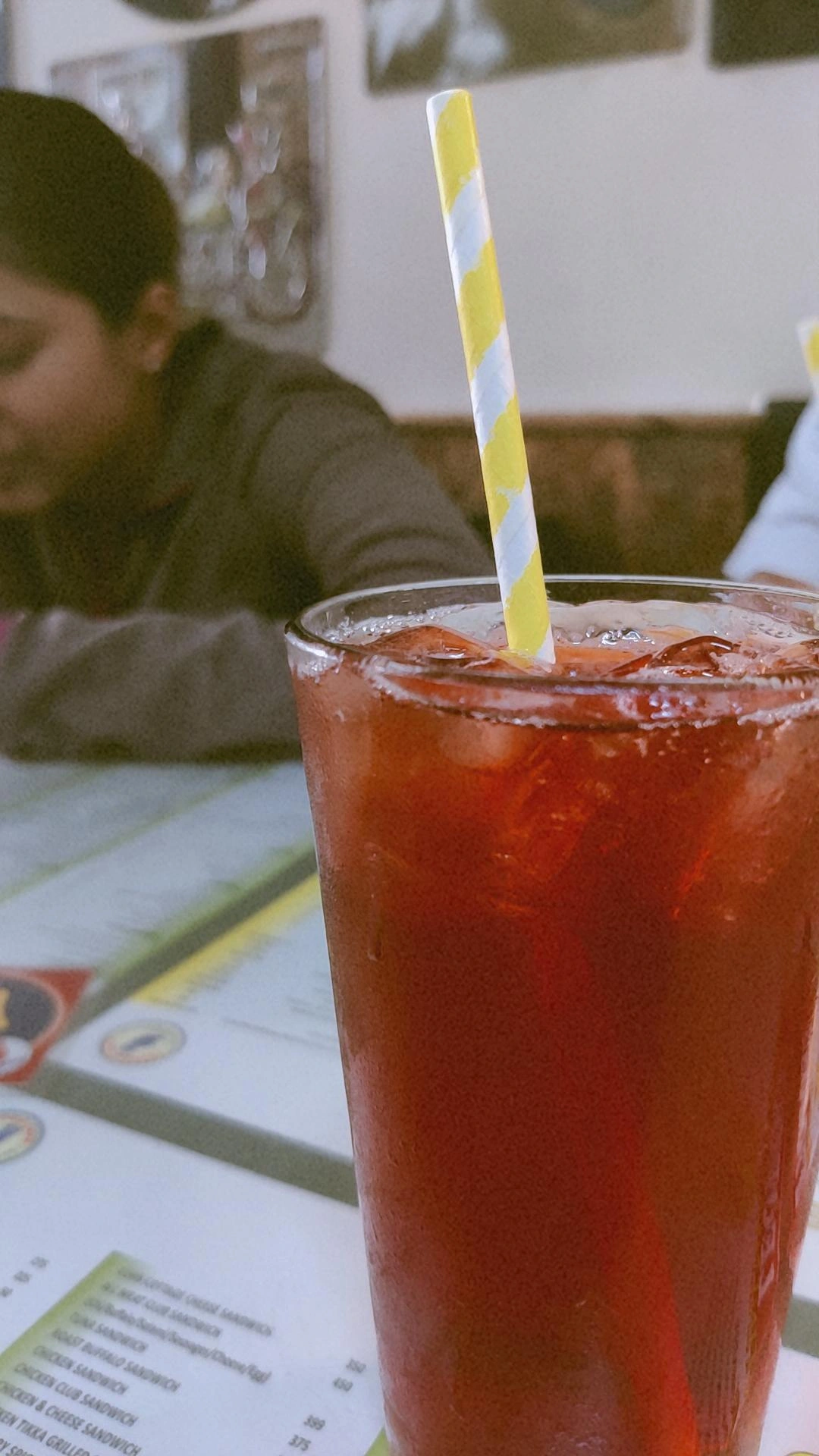 Yet, even in the face of such adversity, Mumbai moved forward. As dawn broke on November 27, buses began running, trains carried passengers again, and life resumed. The city’s resilience was evident—quiet but steadfast.
Yet, even in the face of such adversity, Mumbai moved forward. As dawn broke on November 27, buses began running, trains carried passengers again, and life resumed. The city’s resilience was evident—quiet but steadfast.
I clearly remember my dad packing his bag that morning, ready to leave for work. Despite our pleas for him to stay home, he calmly explained, “Work has to be done.” For him, it wasn’t about making a statement; it was just about doing what needed to be done. Life had to move on, and for him, that meant fulfilling his responsibilities to keep the family going.
Over the years, discussions about 26/11 have often revolved around the failures and the bravery. Friends and I have debated how such an event could have been prevented entirely. We’ve explored the dark motivations behind terrorism and the ways geopolitics fuels such horrors. But beyond the politics, one truth remains: Mumbai’s resilience and the selflessness of its heroes.
The memory of 26/11 is etched deeply into the collective heart of the city. It’s a reminder of life’s fragility and the strength of human resolve. External forces may try to break us, but Mumbai always rises, steadfast and unyielding—a phoenix reborn from the ashes.
